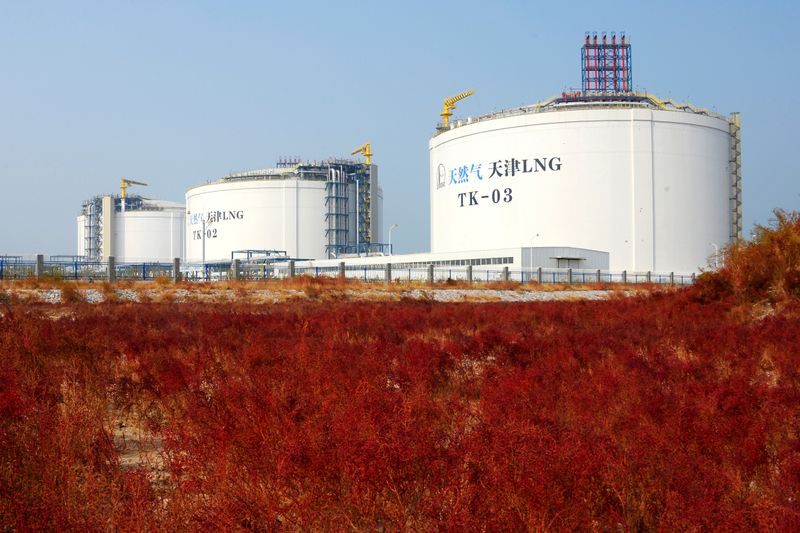By Liz Hampton, Sabrina Valle and Scott DiSavino
HOUSTON (Reuters) -Freeport LNG, operator of one of the largest U.S. export plants producing liquefied natural gas (LNG), will shut for at least three weeks following an explosion at its Texas Gulf Coast facility, raising the risk of shortages especially in Europe.
Freeport LNG, which provides around 20% of U.S. LNG processing, disclosed the shutdown late on Wednesday after appraising damage to the massive facility.
U.S. natural gas markets fell as traders anticipated the outage would lower domestic demand.
The market impact spread on Thursday to drive European gas prices up to a fifth higher as traders feared lost U.S. shipments would stress a market already struggling with reduced Russian supplies.
European buyers have shunned Russian LNG over its invasion of Ukraine - actions that Moscow calls a "special military operation" - and resurgent demand in China has added to the strain, analysts said.
"This is a significant production outage at a major U.S facility," said Alex Munton, director of global gas and LNG at research firm Rapidan Energy. Freeport LNG ships about four cargoes per week and a three-week shutdown will take at least 1 million tonnes of LNG off the market, he said.
"It's going to mean one thing: shortages. The competition for spot LNG is going to drive global LNG prices higher," Munton said.
In Europe, the benchmark front month gas contract at the Dutch TTF hub rose 12.6% to 88.70 euros per megawatt/hour (MWh) in morning trade. British gas prices also jumped with the day-ahead contract gaining 22.1% to 105 pence per therm. Prices calmed later into the session, rising between 5% and 11%.
Traders said it is hard to assess the impact on JKM prices - which are widely used as a benchmark for Asian LNG as it depends on the size of damage and how much the plant would come back online.
JKM prices hovered around $22.5 per metric million British thermal units (mmBtu). It remains at a discount of around $3/mmBtu to the TTF European ags prices.
DESTINATION EUROPE
The Freeport plant can process up to 2.1 billion cubic feet of natural gas per day (bcfd), and at full capacity can export 15 million tonnes per annum (MTPA) of the liquid gas. U.S. LNG exports hit a record 9.7 bcfd last year, according to the U.S. Energy Information Administration (EIA).
Analysts at data intelligence firm ICIS said in a tweet that 68% of Freeport LNG exports in the last three months went to the European Union and Britain.
A European gas trader speaking on condition of anonymity said the gas could be considered "diverted" if the outage is short term, but longer term would strain an already tight market and raised the question of whether Europe could wean itself off Russian gas.
In March, 21 cargoes loaded at the Freeport facility, carrying an estimated 64 billion cubic feet of gas to destinations in Europe, South Korea and China, according to the U.S. Department of Energy. That's up from 15 cargoes in February and 19 in January.
U.S. natural gas futures sank on Wednesday on concerns the explosion could disrupt the plant's demand for gas. They closed down about 6% at $8.699 per million British thermal units (mmBtu), having hit a near 14-year high of $9.664 mmBtu earlier in the day.
Freeport LNG was founded in 2002 by billionaire Michael Smith, and processes gas for companies including BP (LON:BP), JERA, Kansai Electric, Osaka Gas, SK E&S and TotalEnergies. It is in the midst of expanding the plant's capacity to 20 MTPA.
An investigation into the explosion has begun, a spokesperson for the company said, without elaborating on the cause of the fire.
A representative for the U.S. Coast Guard on Wednesday said a security zone had been set up two miles east and west of Freeport LNG's facility, closing that portion of the intracoastal waterway to vessel traffic.
